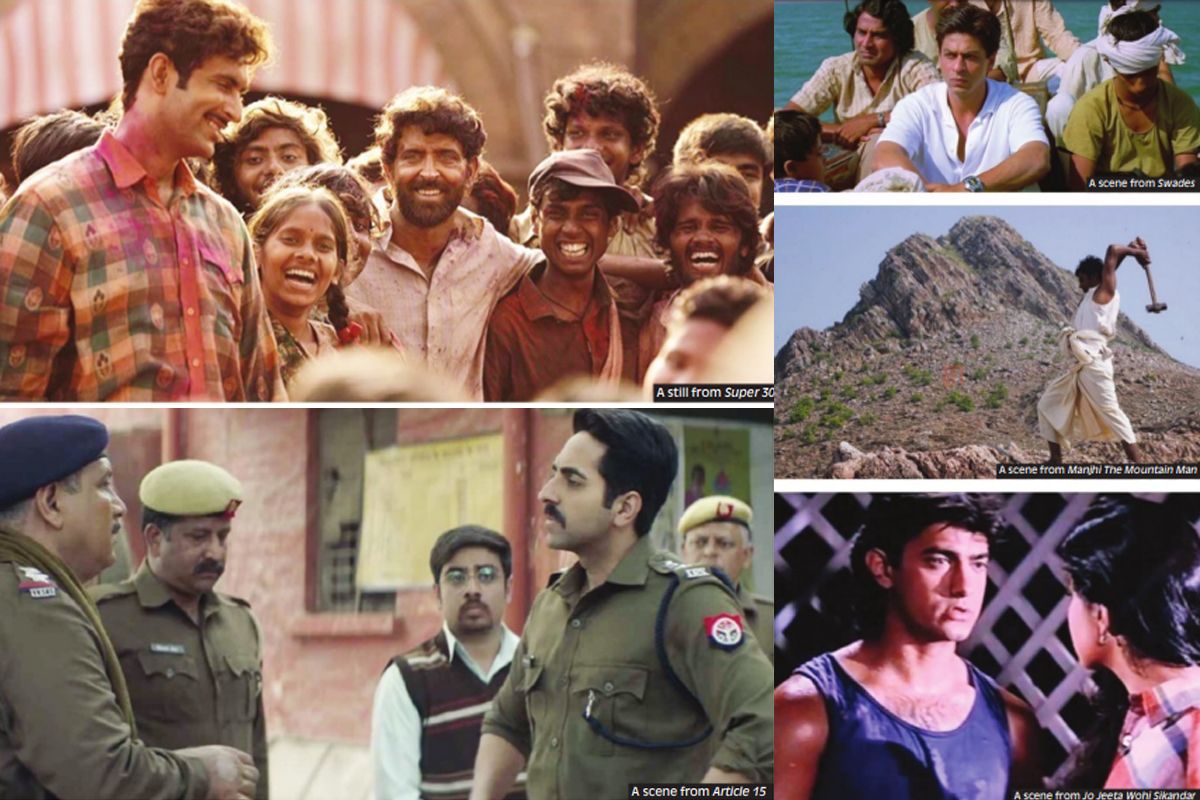Mainstream Hindi cinema, especially in recent times, is replete with films that move viewers to seriously explore their dreams and aspirations
An “inspirational” film is one that moves a part of the audience to do something about their lives or careers, which they had not thought seriously about before. People also call such movies “motivational” but motivation is a bit more abstract than inspiration and the difference is more in terms of degree than quality.
Advertisement
Abhijit Bora and Perosh G Daimari write in Sports Films for Social Message Communication in New Media and Mass Communication, Volume 6, 2012, “While film as a domain is usually not looked up to as an instrument for social development, yet a major portion of films produced the world over make honest efforts in sending out meaningful messages for the benefit of society.”
Award winning screenwriter Stuart Fischoff said, “Film and television frequently breach the boundaries of entertainment and become virtual teaching and inspiration machines. They educate or create dreams, hopes and fears.”
Questions around inspirational films arise in the context of two recent mainstream Bollywood movies that are receiving mixed responses not only from the media but also from intellectuals and social activists. One of these two films is Article 15 and the other is Super 30.
The former film has attracted the wrath of some Dalits and social activists. They allege that making a high-cast Brahmin, in the shape of an IPS police officer in the film, the saviour of Dalits is doing a disservice to the community. On the other hand, a Brahminical society has claimed that the rapes and killings of teenage Dalit girls portrayed in the film, which have been drawn from real life, did not involve a single Brahmin. Whatever one chooses to believe in, Article 15 may be called an inspirational film because it inspires the youth and leads them to adopt positive values in life in an ambience wrought with corruption, exploitation, marginalisation, and the use and abuse of power in its varied manifestations.
Super 30 stars Hindi filmdom’s Greek God Hrithik Roshan as Anand Kumar, a mathematical genius from Patna, who triggered a revolution in the education of kids from extremely poor families. It has just crossed the Rs100 crore mark in box office takings. Kumar began a movement to teach 30 kids from the poorest sections of society free of cost and prepare them for the entrance examination to the Indian Institutes of Technology. His rate of success is around 97 per cent but that also reaches 100 per cent sometimes. This has been strongly contested through the media by Kumar’s competitors, who run five-star coaching classes and charge a five-figure fee from the affluent parents of pupils.
In real life, Kumar has been running these classes for the last 17 years and continues to do so. Since this is very much a mainstream film with enough masala in the form of song and dance numbers, fights, villains, romance and so on, it is attracting the young audience in their droves. It is an extremely positive sign because Kumar is an inspirational personality and most of us are hearing about him for the first time through Super 30. Children, who are desperately poor but would love to educate themselves, would learn of him through this film and at least some of them will go to Patna and search for this great man.
Going a little back in time, Jo Jeeta Wohi Sikandar released on 20 May 1992. It became a benchmark for Hindi mainstream cinema and showed that a masala film, besides offering wonderful entertainment, could also narrate a powerful story filled with hope for the young. 27 years later, one would still want to watch it because it has timeless repeat value. It redefined mainstream films by not catering to the then established clichés that commercial Hindi cinema was replete with. It did not feature a dozen villains and a muscular hero trying to bash them up! The film contained an electric energy that vibrates throughout, throbbing with a life of its own, inviting the audience to participate in the lives of the two brothers.
Cycling as a competitive sport has hardly found place within the realm of Bollywood. In JJWS it is used extremely well as a point of motivation, a severe point of tussle between two groups of students, an example of excellence that demands qualities like discipline, honesty and integrity, and an agency for individual and social change.
Swades, starring Shahrukh Khan, describes in detail how a scientist of Nasa slowly metamorphoses into an agent of change. He is shocked by the fact that a village, which has a post office and primary school, does not have electricity at all. He takes it upon himself to bring electricity to the entire village with the help of locals. After persuading the elders, who do not like his “modern” ways, he succeeds in this mission. It was a mainstream film but contained an essential trigger at its core that makes it inspirational to a great extent.
Manjhi traces the real life story of Daasarath Manjhi who is also nicknamed “The Mountain Man” because he decided to carve a 360 feet long and 30 feet wide path through a mountain using just a chisel and hammer. He was a poor labourer from Bihar who never took any lessons in mountaineering or even stone carving but decided to do it for his dead wife. He had nothing to gain from it except a tribute to his wife who could not be taken to hospital in time and died.
These films, among several others, generate great energy and power leading to aspirations in the minds of those who have a dream but do not know how to fulfill it. Many of them are adapted or inspired by the lives and struggles of real men and women while some are born out of imagination backed by strong ideological values.











